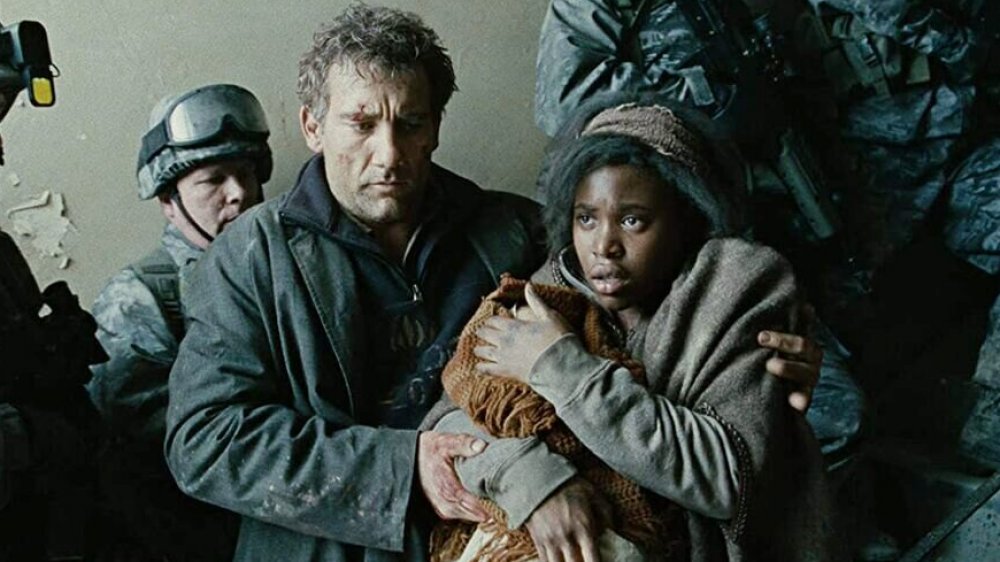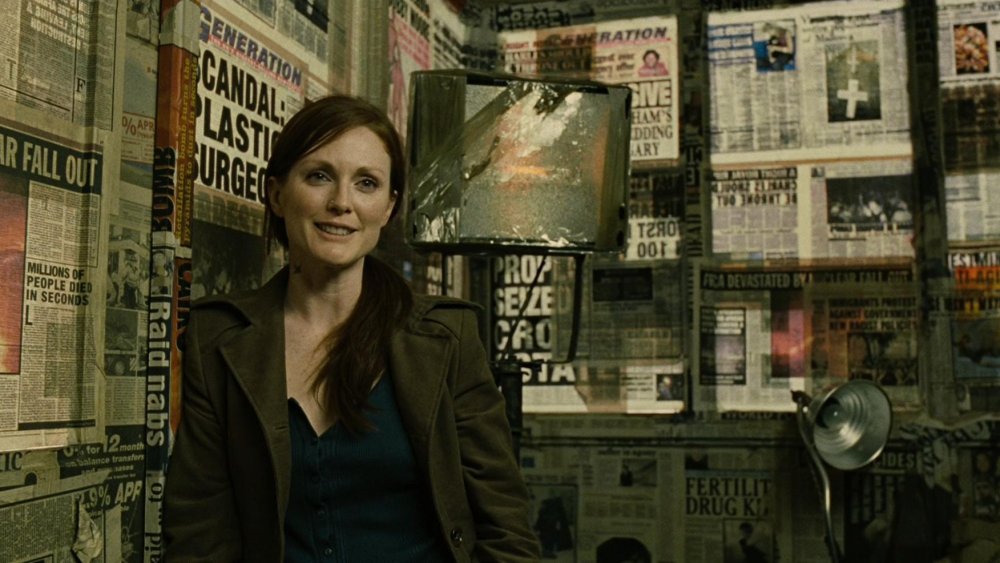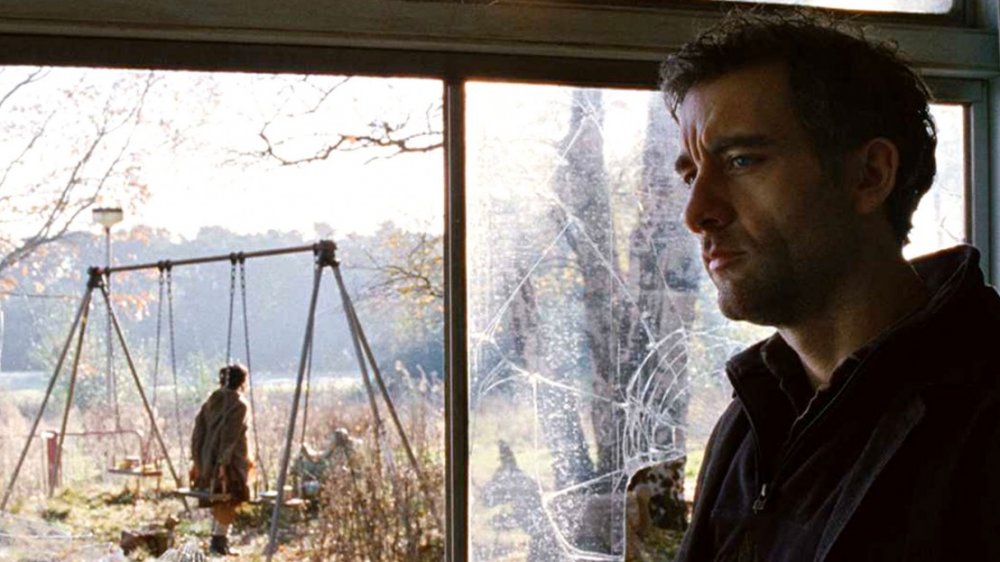The Ending Of Children Of Men Explained
Director Alfonso Cuarón's 2006 opus Children of Men is widely considered to be among the greatest dystopian films of all time, and with good reason. Its premise is harrowing: it opens 18 years after the last known child on Earth was born, as the onset of global infertility has left humanity mired in infighting and on the brink of collapse. Our hero, Theo (Clive Owen), is a onetime activist whose inner flame has largely been extinguished, until he reconnects with his estranged wife Julian (Julianne Moore), who has become involved with an insurgent, anti-government group known as the Fishes. Julian has a proposition for Theo: he can score a large chunk of change for securing transit papers for a young refugee named Kee (Clare Hope-Ashitey). As it turns out, though, the woman may be the literal key to humanity's survival: she is pregnant, and the Fishes are not the only party interested in her fate.
The movie is renowned for its strong performances and expert craftsmanship, particularly Cuarón's signature long tracking shots — one of which, occurring late in the film, has become the stuff of legend. The film's third act sees Theo track Kee (who has been captured by the Fishes, and has given birth to a baby girl) to a burned-out apartment building amid a vicious firefight between the resistance group and a troop of soldiers. Theo manages to kill the woman's captors, but he's badly wounded in the process. As he escorts the woman and her child out of the building, the fighting suddenly stops; the combatants on both sides are simply in awe of the infant in Kee's arms, and they allow the trio to leave unharmed.
As they await a refugee vessel controlled by a benevolent group known as the Human Project which will take them to safety, Theo reveals his wound. He shows Kee how to burp her child, then dies as their ride approaches; over the end credits, we hear the sounds of children at play. Is Kee the first of many? Will humanity survive?
Faith is a strong thread throughout Children of Men
To get to the heart of the film, it helps to know that faith is a central theme of Children of Men. From the "divine judgment" of worldwide infertility to the "miracle" of Kee's pregnancy and birth to the Christian iconography which can be spotted throughout the movie, it's obvious that Cuarón meant to invest his bleak film with a sense of hope. In a 2006 interview with Hollywood Elsewhere, the director confirmed that this was the case — but admitted that the task of evoking such a personal response in his audience was not an easy one.
"I have a very bleak view of the present, but a very hopeful view of the future," the director said. "For me the film is about hope in the end, but you cannot dictate a sense of hope in a viewer because that is very personal and internal... infertility was basically a metaphor for the fading sense of hope. And the Human Project... is a metaphor for human understanding. For me that was sufficient."
So... what about that ending? Kee's rescue, and in particular the telling sound of children's laughter over the end credits, would seem to imply that hope does indeed spring eternal, and Cuarón's remarks appear to guide us to the conclusion that humanity will find a way back from the brink after those credits roll. Cuarón is a director, though, who refuses to hold the hand of his audience, even when he's making a Harry Potter movie — and in a separate 2006 interview, he revealed that the ending of Children of Men is meant to be a reflection of the personal worldview of each individual viewer.
Alfonso Cuarón meant the ending of Children of Men to be ambiguous
Speaking with Filmmaker Magazine, Cuarón expressed his hope that a lot of young people would see the movie, opining that his generation "blew it," and that the inherent hopefulness of coming generations would be needed to gain perspective on a world with no shortage of dire problems to solve. "We saw the world collapse in front of us and we tried to believe that it was not our fault, that it was not our responsibility," Cuarón said. "Younger generations, they were born in a world that went to s**t already, so they have a completely different perspective of what's going on. I really believe in the evolution of human understanding that's happening in [the younger] generation and the generation to come."
The director continued to say that, with this in mind, the ending of Children of Men was bound to strike different notes depending upon the viewer. "My intention was to take [the audience on] a road trip through the state of things, and then once you go through this journey, for you to try to come up with your own conclusions about the possibility of hope in a world like this," he explained. "We wanted the end to be a glimpse of a possibility of hope, for the audience to invest their own sense of hope into that ending. So if you're a hopeful person you'll see a lot of hope, and if you're a bleak person you'll see a complete hopelessness at the end."
Well, it may not be the cut-and-dried analysis we would have gotten from a different filmmaker, but Cuarón's work is nothing if not challenging and provocative, and we love him for it. In the end, the question of just what Children of Men's ending means can only be answered with another question: how did it make you feel? We found it to be a very hopeful ending, indeed — and hope is something we can always use more of.
Children of Men is available to rent now in VOD platforms including Amazon Prime, Vudu, and YouTube.


